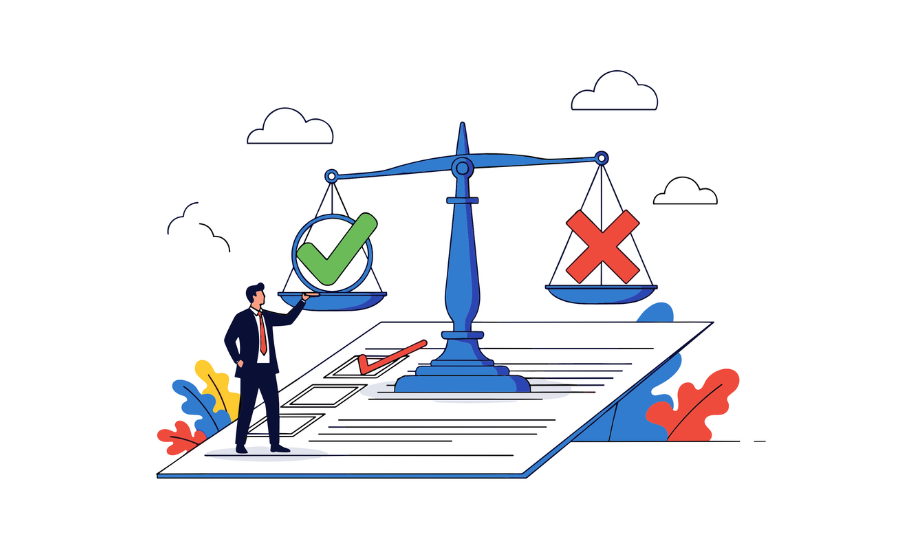Table of Contents
ASC 820, the US accounting standard for fair value measurement, sets the framework for how companies define, apply, and disclose fair value. For executives, auditors, and business owners, ASC 820 valuation is much more than just a compliance requirement. It is also a critical component of decision-making that influences strategy, risk management, and transparency.
ASC 820 valuation impacts areas such as impairment analysis and balance sheet valuation. Whether for publicly traded corporations, private equity-backed firms, or smaller enterprises preparing GAAP-compliant statements, this framework ensures that stakeholders receive reliable and comparable information. When approached strategically, ASC 820 valuation goes beyond regulatory compliance and supports executive insight, capital allocation, and corporate growth.
What is ASC 820 Valuation (USA)?
ASC 820, issued by the Financial Accounting Standards Board (FASB), standardizes how fair value should be measured and disclosed under US GAAP. It does not dictate when fair value must be used – other standards, such as ASC 350 (goodwill impairment), ASC 805 (business combinations), and ASC 815 (derivatives), provide that guidance. Instead, ASC 820 offers a consistent definition of fair value and establishes a hierarchy of inputs used in valuation.
Fair value under ASC 820 is defined as:
“The price that would be received to sell an asset or paid to transfer a liability in an orderly transaction between market participants at the measurement date.”
Key aspects include:
- Exit price, not entry price: Focused on the amount that would be received if the asset were sold today, not the historical purchase price.
- Market participant perspective: Valuation assumes a transaction between knowledgeable, independent parties.
- Orderly transaction: Reflects typical market conditions, not distress or liquidation scenarios.
Valuation Approaches under ASC 820
- Market Approach: Relies on observable market transactions or quoted prices for identical or similar assets.
- Income Approach: Uses discounted cash flow models or earnings capitalization to estimate present value.
- Cost Approach: Estimates replacement cost, adjusted for physical deterioration or obsolescence.
The Fair Value Hierarchy
ASC 820 categorizes valuation inputs into three levels to ensure transparency:
- Level 1: Quoted prices in active markets for identical assets or liabilities.
- Level 2: Observable inputs for similar items, such as market comparables or yield curves.
- Level 3: Unobservable inputs, typically management assumptions or financial models.
By requiring disclosure of which level is used, ASC 820 valuation allows investors, auditors, and regulators to understand how reliable the reported numbers are.
Compliance and Transparency: The Role of ASC 820 Valuation in the USA
Accurate fair value measurement under ASC 820 ensures that financial reporting reflects current market conditions, improving the quality and reliability of published financial statements. Beyond this requirement, ASC 820 also plays a critical role in enhancing transparency for investors, lenders, and regulators.
Why Compliance Matters
- Audit Readiness: Proper application of ASC 820 reduces the risk of audit findings and ensures alignment with GAAP.
- Investor Confidence: Consistent disclosures strengthen trust, especially in industries where fair value drives key performance metrics.
- Regulatory Alignment: By following the fair value hierarchy and disclosure framework, companies protect themselves against compliance risks and potential penalties.
Why Transparency Matters
- Clarity on Assumptions: Level 3 inputs require companies to disclose assumptions, which gives stakeholders insight into risk.
- Comparability Across Businesses: Investors can evaluate how different businesses measure similar assets, supporting more informed decisions.
- Balanced View of Risk: Transparent fair value reporting highlights both the strengths and vulnerabilities on a balance sheet.
For executives, transparency is not only about meeting regulatory demands; it is also a way to demonstrate sound governance and reinforce credibility with markets and stakeholders.
How ASC 820 Valuation Services Support Business Decision Making?
While ASC 820 is rooted in compliance, its practical value for executives extends into strategy and financial leadership. Professional valuation services offered by a business consulting firm or a strategic financial advisory team provide insights that guide major business decisions.
Strategic Benefits of ASC 820 Valuation-
- Capital Allocation: Understanding fair value helps management determine whether to hold, sell, or reinvest in assets.
- Risk Management: Evaluating reliance on Level 2 or Level 3 inputs informs leaders about market exposure and valuation uncertainty.
- Impairment Testing: Timely impairment analysis, guided by ASC 820, helps executives decide on asset write-downs, restructuring strategies, or reinvestment opportunities.
- Tax Planning: Fair value assessments support tax-efficient structuring, deferred tax calculations, and compliance with IRS requirements, making valuation a vital element of strategic financial planning.
- M&A Transactions: Accurate ASC 820 valuation is critical in acquisitions and divestitures. It ensures fair value purchase price allocation at closing and provides the basis for subsequent goodwill and intangible asset impairment testing.
- Performance Measurement: Fair value adjustments flow through financial statements, influencing reported net income and equity. Executives use these metrics to assess financial health and communicate with boards and investors.
- Scenario Planning: Income-based valuation approaches allow businesses to model how changes in assumptions, such as discount rates or cash flows, would affect asset values.
In this way, ASC 820 valuation is not just an accounting exercise but also a forward-looking management tool that shapes long-term strategy.
Businesses That Benefit from ASC 820 Valuation Services
ASC 820 valuation is relevant across industries and company sizes. Any organization operating in the US that holds complex assets, investments, or goodwill must address fair value measurement and impairment testing as part of its reporting process.
Examples of Businesses That Benefit-
- Public Companies: Required to comply with GAAP and disclose fair value measurements in quarterly and annual filings.
- Private Equity Firms: Use ASC 820 valuation for portfolio company reporting, exit planning, and investor transparency.
- Hedge Funds and Venture Capital Firms: Depend on fair value to report portfolio valuations, mark-to-market adjustments, and investor reporting with accuracy and consistency.
- Insurance Companies: Apply fair value measurement to investment portfolios, policyholder liabilities, and risk management frameworks.
- Financial Institutions: Banks and insurers rely on fair value for securities, derivatives, and loan portfolios.
- Healthcare and Technology Companies: Often hold significant intangible assets, goodwill, and R&D investments subject to impairment valuation.
- Real Estate and Construction Firms: Depend on balance sheet valuation of properties, development projects, and long-lived assets.
- Startups and Growth Companies: When raising capital, impairment testing and valuation support investor negotiations and compliance with financing agreements.
For all these businesses, working with an experienced business consulting firm, like AcumenSphere, ensures not only compliance but also strategic insights into the true economic value of their assets and liabilities.
Conclusion: Turning Compliance into Strategic Advantage
ASC 820 valuation is mandatory whenever fair value measurement is required under U.S. GAAP, but its benefits extend far beyond compliance. By standardizing how fair value is measured and disclosed, ASC 820 enhances transparency, strengthens audit readiness, and builds investor trust. Executives who view ASC 820 valuation not just as a reporting task but as a strategic financial advisory tool position their companies for smarter capital allocation, stronger investor relationships, and more resilient decision-making. Turning compliance into a strategic advantage requires expertise in fair value measurement, which is why organizations seek professional valuation support. AcumenSphere provides ASC 820 valuation and impairment services for entities operating in the U.S., combining compliance expertise with strategic financial advisory to support business leaders in making informed decisions. To explore our ASC 820 valuation services or request a quote, call +1 (510) 203-9584 or email info@acumensphere.com. You can also fill out our contact form, and we will get in touch as soon as possible.
FAQ's
ASC 820 valuation is the process of measuring and disclosing the fair value of assets and liabilities under U.S. GAAP, based on the framework established by the Financial Accounting Standards Board.
Yes. ASC 820 is mandatory whenever another accounting standard requires or permits fair value measurement. It provides the definition, hierarchy, and disclosure framework for compliance.
Impairment analysis and impairment testing often require fair value measurement to determine whether an asset’s carrying value exceeds its fair value. ASC 820 provides the framework for these fair value calculations.
Impairment valuation is a specific application used to test whether an asset has lost value. ASC 820 valuation is the broader fair value measurement framework that impairment valuation must follow.
Public companies, private equity firms, financial institutions, real estate developers, and any organization with goodwill, intangible assets, or complex financial instruments benefit from ASC 820 valuation services.
ASC 820 affects how assets and liabilities are presented at fair value on the balance sheet. This improves the accuracy of financial reporting and gives stakeholders a clearer picture of current market conditions and risks.
A business consulting firm like AcumenSphere ensures valuations are GAAP-compliant, audit-ready, and aligned with industry standards, while also offering strategic insights for decision-making.
By offering transparency into fair value, ASC 820 valuation informs decisions about capital allocation, mergers and acquisitions, performance measurement, and risk management.




